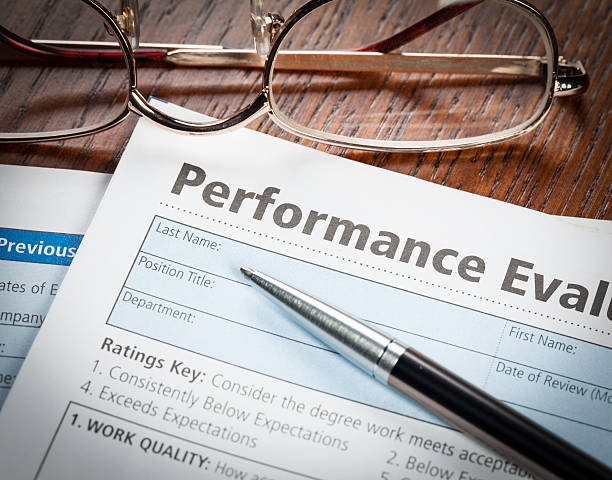
As you will be aware sickness absence can so easily negatively impact the operation of any business. Employers are also under a duty to ensure the health, safety and well being of those that they employ. With this in mind, welfare meetings play a valuable role in in the process of absence management – be it to encourage and support an employee in their return to work or to limit the impact of any absence by proactively dealing with situations in which employees are not able to return to work.
Conducting Effective Welfare Meetings
In this guide, we consider how to effectively conduct a welfare meeting to gain a better understanding of the support measures required to encourage a speedy return to the workplace.
Whilst such meetings can sometimes feel uncomfortable due to the sensitive nature of the subject matter, understanding the reasons for an employee’s absence, or the affect a health issue might have on performance, is crucial. Such meetings also allow for better knowledge and understanding of any potential reasonable adjustments that can be (or should be in the case of disabled employees) made.
By holding a welfare meeting you are aiming to:
- Obtain a greater understanding of the cause of the absence, or health issue.
- Understand what the employee is doing to support his or her recovery.
- Suggest any support and assistance which may be available through work, including the use of reasonable adjustments where required.
- Make the employee feel valued.
- Provide any business news or updates, should the employee wish to be kept up to date as by doing so you are also encouraging their return to work.
General HR Advice
- The meeting is an informal meeting to offer support and gather information from the employee, and so it requires a different manner to more formal meetings such as disciplinary/performance management/formal consultation meetings. The employee should feel that you are showing sympathy towards them and should not feel ‘interrogated’.
- Be mindful that the employee may be feeling unwell, or anxious. They may feel uncomfortable discussing aspects of their condition. It is important to set the right tone, and reassure them of the purpose of the meeting.
- Word for word minutes aren’t necessarily required however you should note down what is said accurately and in an understandable format. It is important to take notes if the employee needs to raise anything in particular; i.e. write down medication, technical information regarding medical procedures, any informal grievances or concerns etc.
- You can offer to hold the meeting at the employee’s home or mutually convenient location away from the workplace if the employee prefers.
- If in the workplace, ensure there is a suitably private space to hold it and that enough time is given to it so as not to feel rushed.
Welfare Meetings | The Opening
- Thank the employee for attending.
- Whilst optional, it is worth offering an option for the employee to have a companion present, such as a family member or friend (for those on long term sick, particularly if mental health related or a sensitive issue), if they wish.
- Explain that this is a welfare meeting to catch up with the employee on how they are but also answer any questions they have since being away from work.
- Explain the presence of the note taker if there is one, and that the notes are being taken so that an accurate record of the meeting will be kept.
Welfare Meetings | Key Questions
The questions will depend on the nature and length of the absence and it is an informal friendly conversation therefore don’t limit yourself to the below questions. Allow the conversation to flow naturally.
- You should start by asking a general question about the employee’s current health such as ‘how are you feeling?’
- Ask the employee whether they feel better or worse than before – are they on the road to recovery or is the condition deteriorating?
- Is there any background to their condition; i.e. how long have they had the condition for and what are their symptoms, are they on medication? (unless all of this has already been covered in previous welfare meetings).
- Ask if there have been any further developments since you last met / spoke.
- Ask them what medical advice they have been given, any medical support they have been given and any medication they are currently on.
- Ask the employee whether they foresee a return in the near future and when they anticipate a return (or if their GP has advised on this).
- Ask the employee whether they feel they could benefit from any reasonable adjustments to the role to help them return, such as a phased return or light duties (ask them to confirm whether temporary (if so how long for) or permanent).
- Explain that you would like to obtain medical input on their condition and foreseeability of a return to work. Ask them to sign the consent form attached to the invitation letter and explain that you would like to obtain further medical advice from their GP, which will give you guidance in terms of their state of health and if there is anything you can do to help them to return to work.
- Tell the employee that the next steps will be for you to contact their GP and then meet again to discuss the content of the report.
- Ask whether they have anything else they wish to add/any other information they wish to give you.
- Update them on any company news; i.e. any colleagues who have had a baby, retirement etc. or any updates on work in general (nothing too intense but general updates such as any new exciting projects, who is covering their work temporarily etc.)
Next Steps
- Following the meeting, you will need to follow up on any medical input the employee has consented to and formulate an action plan, based on any potential reasonable adjustments.
- The action plan may be to keep the situation under review if the prognosis is unclear or the employee is not in a position to consider a return to work just yet.
- It is worth agreeing a potential time line and/or how best to keep the lines of communication open.
Ultimately, in situations where there is little or no prospect of an employee being in a position to return to work in the foreseeable future or performing their role to the required standard due to their health, the next steps would be to progress matters to a more formal capability hearing. Such a hearing would only usually be convened following input from the employee and upon obtaining as much information as possible about their condition (essentially from a medical practitioner or OH provider unless the employee refuses consent). It would also only be appropriate once all discussions about support and potential reasonable adjustments have been exhausted.
Please contact our team on 033 33 215 005 or email websiteenquiries@wirehouse-es.com if you have any employees you wish to invite to a welfare meeting and we can support you with advice and guidance specific to your circumstances.





